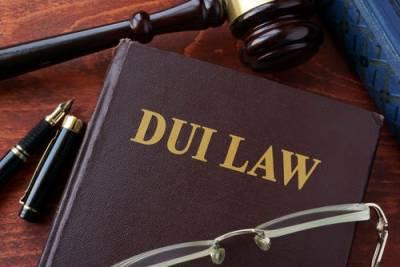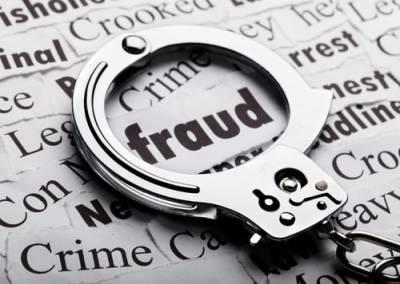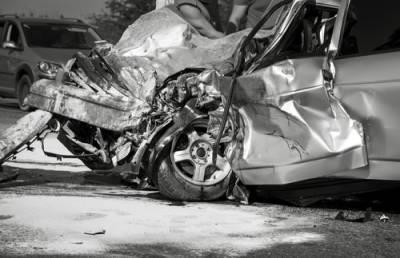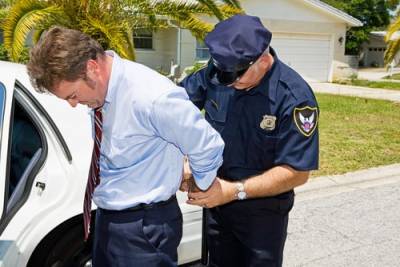Recent Blog Posts
Need Criminal Defense Help in Connecticut?
 In this country, a person is innocent of a crime until they are proven guilty, and they are entitled to a chance to defend themselves from charges. Defendants have rights, and if you have been charged with a crime, you need a Connecticut criminal defense attorney who will fight to protect yours.
In this country, a person is innocent of a crime until they are proven guilty, and they are entitled to a chance to defend themselves from charges. Defendants have rights, and if you have been charged with a crime, you need a Connecticut criminal defense attorney who will fight to protect yours.
Even Innocent People May Need Attorneys
In today’s United States, the criminal justice system can be an intimidating place, especially if you are innocent of the crime you have been charged with. While it is rare to find yourself faced with outright malice from police or prosecutors, it is sadly not uncommon to find an error on their part, which can sometimes put an innocent person in the proverbial crosshairs. Extreme examples have put innocent people behind bars - though none have occurred in Connecticut, there have been hundreds of exonerations of innocent people wrongfully convicted in 37 states since the 1970s.
Charged with DUI in Connecticut?
 Driving while under the influence of any substance is no laughing matter, and if you are caught, you can face serious repercussions. However, it is not necessary that your life be ruined, especially if it is your first offense. A Fairfield DUI attorney may be able to help work out a fair outcome in your case.
Driving while under the influence of any substance is no laughing matter, and if you are caught, you can face serious repercussions. However, it is not necessary that your life be ruined, especially if it is your first offense. A Fairfield DUI attorney may be able to help work out a fair outcome in your case.
Connecticut DUI Facts
In Connecticut, you are considered to be driving under the influence if your blood alcohol content (BAC) is over 0.08, though the number is even lower for commercial drivers (0.04), and those under age 21 (0.02). If you are shown to be driving under the influence, you will almost certainly be arrested, booked and read your rights, and will usually be released upon your own recognizance (that is, released upon a promise that you will appear in court later) unless you have caused injury or property damage while driving under the influence. If you cause injury or property damage while driving under the influence, the charges you will face may be greater.
What Is a White Collar Crime?
 You have probably heard the term “white collar crime,” but you might not know what that term actually means. A white collar crime is generally a nonviolent, financially motivated offense by a business or government professional. The classic example is an employee stealing money from his employer.
You have probably heard the term “white collar crime,” but you might not know what that term actually means. A white collar crime is generally a nonviolent, financially motivated offense by a business or government professional. The classic example is an employee stealing money from his employer.
In Connecticut, white collar crimes carry stiff penalties. Contact a criminal defense attorney immediately if you have been charged with committing any type of white-collar offense.
Types of White Collar Crimes
There are many types of white collar crimes. Examples include:
- Embezzlement. You may be convicted of embezzlement in Connecticut if you wrongfully appropriate someone else’s property to yourself or to another. In other words, embezzlement is a type of theft. It means you took something that does not belong to you. Punishment varies based on the value of the property. For example, it is a Class B felony if the property is worth more than $20,000. A Class B felony is punishable by up to 20 years in prison and a $15,000 fine.
Charged with Rape in Connecticut?
 Not every rape allegation is true. But every rape allegation is taken seriously, which is why you need an experienced defense attorney if you are charged with committing rape. The following includes nine things you need to know when facing rape charges in Connecticut:
Not every rape allegation is true. But every rape allegation is taken seriously, which is why you need an experienced defense attorney if you are charged with committing rape. The following includes nine things you need to know when facing rape charges in Connecticut:
- It is rape if you force someone to have sex with you. Both parties must willingly consent in order for sex to be consensual. Consent is always a defense to a rape charge (and to other sexual assault charges);
- It is called forcible rape if the offender uses a weapon or threatens to use a weapon;
- Rape is a felony offense punishable by at least 10 years in prison. Offenders face an even longer prison sentence if the victim is under 16 years old. An experienced attorney can explain the potential consequences of the crime you have been charged with;
The Consequences of Vehicular Homicide
 When you think of the legal consequences of car accidents, you probably focus on civil lawsuits like personal injury and wrongful death cases. But depending on the circumstances, the person responsible for the accident might also face criminal charges.
When you think of the legal consequences of car accidents, you probably focus on civil lawsuits like personal injury and wrongful death cases. But depending on the circumstances, the person responsible for the accident might also face criminal charges.
A common example is negligent homicide with a motor vehicle.
What Is Negligent Homicide with a Motor Vehicle?
Negligent homicide with a motor vehicle, or vehicular homicide, happens when a negligent driver causes another person’s death. Here are a few things you need to know if you are charged with this crime:
- A driver is negligent if he or she fails to use a reasonable amount of care. This is based on what ordinary people do under similar circumstances. In other words, if most people keep a safe distance between vehicles and obey posted traffic signs, then it is considered negligent when someone does not follow these practices;
Illegal Drug Possession in Connecticut
 To be convicted of illegal drug possession, the state must prove beyond a reasonable doubt that:
To be convicted of illegal drug possession, the state must prove beyond a reasonable doubt that:
- You possessed the drugs;
- What you possessed is actually an illegal drug; and
- You were aware of the possession.
There are two ways you can get in trouble for illegal drug possession in Connecticut. The first is if you actually possess the drugs, and the other is if you constructively possess the drugs.
What Is Actual Drug Possession?
Actual drug possession means you physically have the illegal drugs on your person. For example, if you have a small bag of cocaine in your pocket then you can be convicted of illegal possession.
What Is Constructive Drug Possession?
Constructive possession means you have control over the illegal drugs. For example, if you know where the drugs are and you are physically able to access them then you can be convicted of illegal possession. Imagine that you are a passenger in a car and you know that the driver has marijuana hidden in the glove compartment. That counts as constructive possession.
What Happens If You Refuse to Take a Breathalyzer?
 It is illegal to operate a motor vehicle in Connecticut when your blood alcohol content (BAC) is .08 percent or higher. (If you are an underage driver, it is illegal to operate a motor vehicle when your BAC is 0.02 percent or higher).
It is illegal to operate a motor vehicle in Connecticut when your blood alcohol content (BAC) is .08 percent or higher. (If you are an underage driver, it is illegal to operate a motor vehicle when your BAC is 0.02 percent or higher).
Under Connecticut’s implied consent law, it is presumed that all drivers have consented to taking a chemical test to determine BAC.
There are three different methods police use to determine a driver’s BAC: breath, blood or urine. Breath tests (using a breathalyzer) are the most common method, but it is up to the arresting police officer to make that call.
But should you agree to take a breathalyzer or other chemical test? That is a complicated question, and it really depends on the facts of your case. Luckily, you have the right to seek legal advice before submitting to a chemical test. You do not have to consent or refuse immediately. Exercise your right to call an attorney.
Bullying in Connecticut Schools
 Bullying is a serious issue in Connecticut schools. Between 2011-2013, one in six students reported being bullied online, and one in five reported being bullied at school.
Bullying is a serious issue in Connecticut schools. Between 2011-2013, one in six students reported being bullied online, and one in five reported being bullied at school.
Connecticut does not tolerate bullying in schools. Children accused of bullying may face school disciplinary proceedings and, in some cases, criminal charges. Here are a few frequently asked questions about what Connecticut considers bullying and the resulting consequences.
Q: What behaviors are considered bullying in Connecticut schools?
A: Bullying takes many forms. It can be written, verbal or electronic threats (like cyberbullying). It can be physical assault, like kicking, punching, shoving or tripping. It can be harassment or hazing. It can be a physical act or gesture repeatedly directed at another student. Bullying usually happens because of a student’s race, color, gender, sexual orientation, physical appearance, or mental disability, or because of other actual or perceived differentiating characteristics.
Understanding Larceny
 In July 2018, Stamford police received reports of two stolen cars in the Ridges neighborhood (the calls were two hours apart). Police apprehended the suspect driving the second car and charged him with reckless driving, driving without a license, and first-degree larceny, among other offenses.
In July 2018, Stamford police received reports of two stolen cars in the Ridges neighborhood (the calls were two hours apart). Police apprehended the suspect driving the second car and charged him with reckless driving, driving without a license, and first-degree larceny, among other offenses.
What Is Larceny?
Larceny is a type of property crime. Under Connecticut law, a person commits larceny when “he wrongfully takes, obtains or withholds” property from its owner. The accused must have “intent to deprive another of property or to appropriate the same to himself or a third person.”
Larceny takes many forms, including (but not limited to):
- Embezzlement, which happens when someone is entrusted with someone else’s property and takes it for himself;
- Obtaining property by false pretenses or false promise, which basically means someone manages to obtain someone else’s property by defrauding them;
The Right to Trial by Jury
 Under most circumstances, the federal Constitution guarantees criminal defendants a trial by jury. Whether this right applies in your case depends on the severity of the offense. Specifically, the U.S. Supreme Court has said that the crime must carry a penalty of more than six months’ imprisonment).
Under most circumstances, the federal Constitution guarantees criminal defendants a trial by jury. Whether this right applies in your case depends on the severity of the offense. Specifically, the U.S. Supreme Court has said that the crime must carry a penalty of more than six months’ imprisonment).
Connecticut also guarantees criminal defendants a jury trial. The right only exists when the maximum penalty is at least a $200 fine. If the offense involves violations payable through the Centralized Infractions Bureau (a traffic violation) then the maximum penalty must be more than $500. Unless the law says otherwise, the jury will consist of six people.
Can I Waive My Right to a Jury Trial?
The judge must advise the defendant of his or her right to a jury trial at the plea hearing (when the defendant is formally charged and before the judge for the first time). If the defendant does not “claim a jury” at the hearing, then the right is considered waived. However, the judge may reinstate the right within 10 days if the defendant did not understand his or her rights, or if the judge thinks justice will not be served without a jury.







